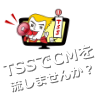TSS Archive Project
University of Idaho & TSS Joint Project
Hiroshima, Japan -September 3, 2025
English Versions of Atomic Bomb Testimonies Now Available Worldwide Featuring
“Chieko Kiriaki’s Testimony” and “A Malaysian Second-Generation Survivor’s Promise”
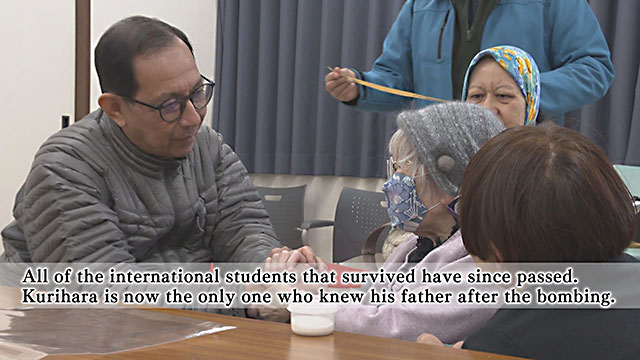
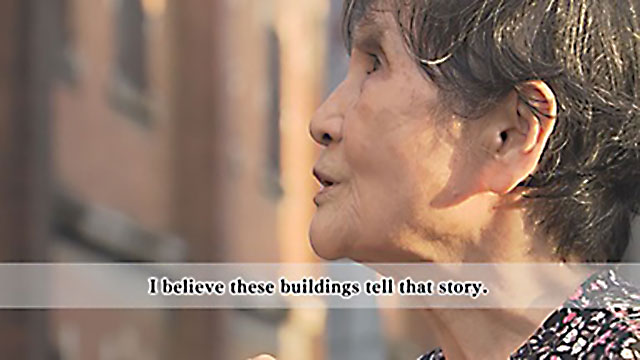
The Next Generation Succession Project is a related initiative of the TSS Archive Project, led by TSS (Television Shin-Hiroshima), a broadcaster based in the atomic-bombed city of Hiroshima. This project engages younger generations in translating hibakusha testimonies and related materials into English, with the goal of sharing these stories with the world. Since January 2024, the University of Idaho in the United States has officially adopted the initiative as part of its Japanese language program (instructor: Azusa Tojo). This year, 16 students participated in the English translation of two testimonies. These works will be released globally via the official TSS Archive Project website starting on September 3,2025.
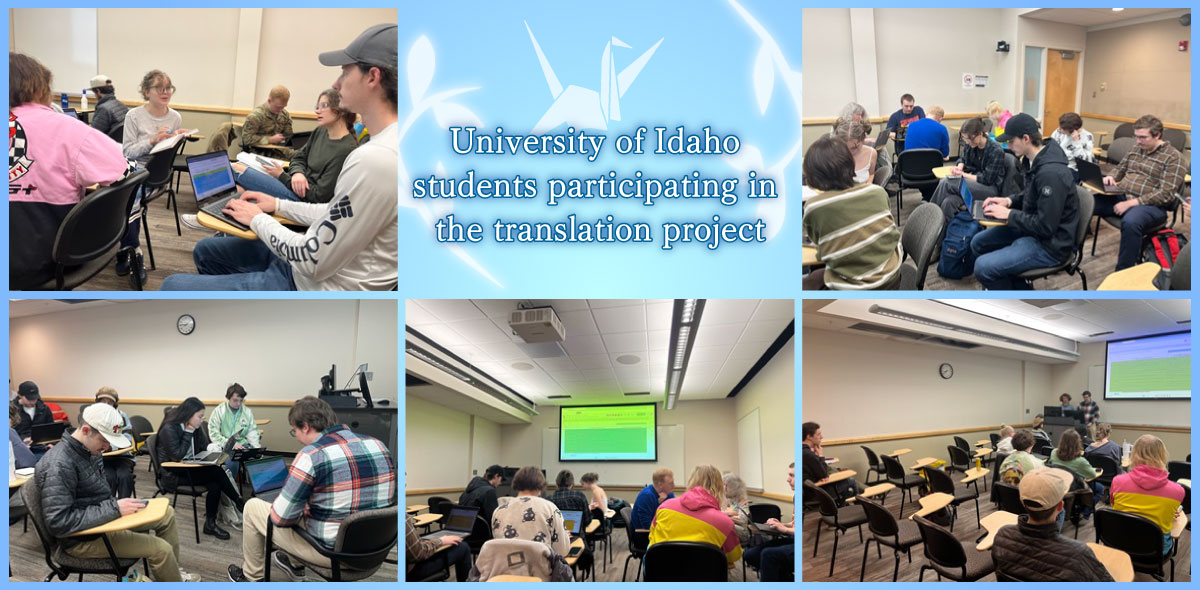
Voices of Student Representatives from the English Translation Project
Laney Kinnick
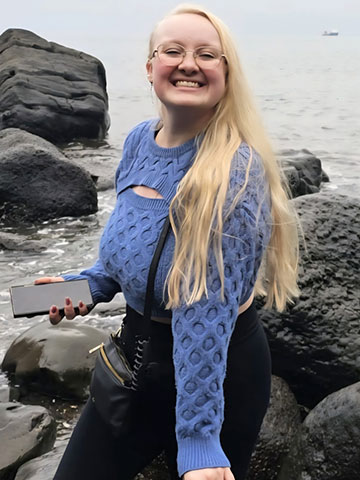
Being able to work on this project was such an honor and it is an opportunity that I will never forget. I was not only able to work on my language skills, but I was also able to contribute to a very special and important project. The strength and bravery that each of the survivors had while telling their stories was truly inspiring and I hope that TSS will be able to continue working with Tojo Sensei on these projects in the future. This project had a huge effect on the way I think about and view nuclear war, and I think that translating the stories so that everyone is able to access them is extremely important. The testimonies of the atomic bomb survivors are proof of the damage that nuclear weapons cause, both physical and emotional, and by translating the survivors stories we can keep their memories and their lessons alive.
Casey Grady
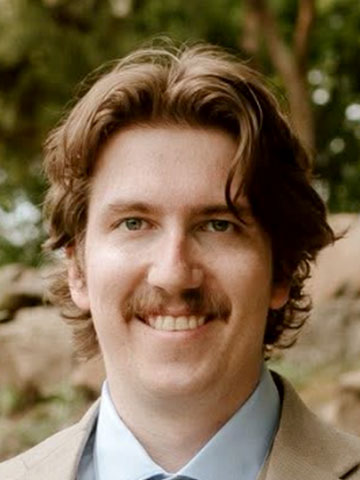
I am deeply honored to have worked on this translation project. Hearing the messages from Ms. Kiriake and Mr. Razak truly opened my eyes to a new perspective on the war and the events that took place in Hiroshima during World War II. Prior to this project, most of what I knew about the war came from an American point of view. Hearing the personal stories of people whose lives were forever changed by a conflict they had no part in profoundly shaped the way I understand war. I hope to carry the messages I’ve learned and share them with as many people as possible, so that we may continue to pass the torch of peace.
Mia Lorenzini
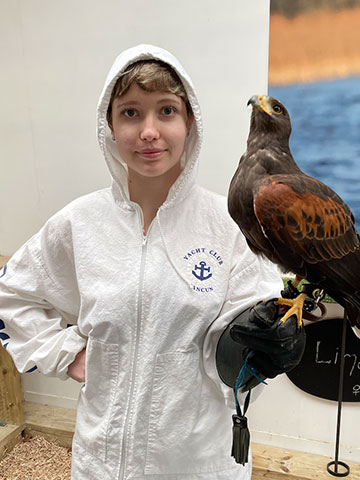
Before this translation project I knew little to nothing about the history of Hiroshima and Nagasaki. What was once just numbers in a history book, transformed into real people with real lives. Working on the translation project taught me how important it is to spread awareness about the dangers of war. The bombing wasn’t just something that happened in the past, it drastically changed people’s lives and still affects people today. It’s so important to share the stories of survivors, so the past isn’t forgotten or repeated. It also gave me such a huge sense of respect for Keiko, and all the other victims of the atomic bomb. How hard it must have been to go through that especially being so young. This translation project made me believe in a future without atomic warfare, and gave such a valuable insight into how we can work towards peace.
Oakley Cloward
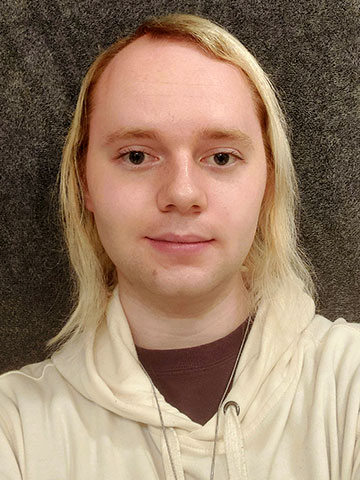
It was such an honor to work on this project alongside everyone. I had a wonderful experience going over the testimonies and translating them for English audiences using my knowledge of the Japanese language. Before having worked on this, I did not know much about the Hiroshima bombing, other than it was what ended World War II. Now, I have a greater understanding of the atomic bomb's impact on both Hiroshima and its citizens, showcasing the horrific nature of nuclear weaponry. I believe most people often focus on the bomb itself and its destructive power, forgetting to consider those who lived in Hiroshima and what they endured, which is why it is especially important to have these testimonies so we may hear from those who speak up and tell their stories, and ensure we may never repeat this historical event.
Tanka Poems by Students Expressing Their Wishes for Peace
- Streets filled with silence
Black and white photos remain
Laughter turned to ash
A child’s toy lost to the flames
History one mustn’t repeat
- A cold cloudy past
filled with flames, hail, and thunder
A seed we shall plant
with an undying story
Leaving our hope for next spring - My country’s past crimes
Left devastation, tears, and
Dread. That, we regret
Now, we must hold together
Peace and kindness close to heart - Skies once blue, burning
Human lives were turned to ash
How did we get here?
How can we save what was lost?
I look to times past in grief - Countries torn apart
Monuments of ash and stone
Bodies left to rot
Was it worth the blood they gave
Was it worth the world we lost
University of Idaho
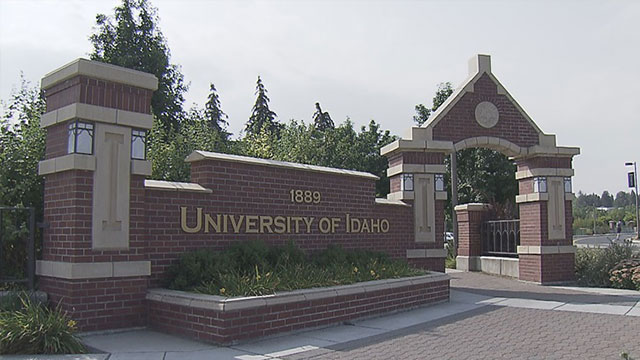
Founded in 1889, the University of Idaho is a public research university located in the northwestern region of the state. As the leading research institution in Idaho, it plays a significant role in supporting the local economy and employment. The university fosters diverse perspectives and innovative, creative thinking, offering over 200 undergraduate and graduate programs. In addition to its main campus in the city of Moscow, it operates campuses and research facilities throughout the state.


